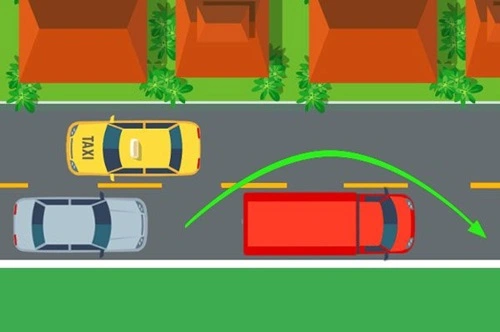No, it is not illegal to pass another vehicle under normal circumstances, but the act becomes illegal if done in violation of specific traffic laws or road conditions. Passing laws are in place to ensure safety and prevent accidents, and violating these rules can result in fines, points on your license, or even criminal charges in severe cases.
Understanding Legal Passing Rules
Passing another vehicle is a routine maneuver on the road, but it must be done responsibly and within the bounds of the law. Traffic laws regulating passing vary by state but share common principles.
1. Passing on the Left
Passing on the left is generally allowed when it can be done safely, but drivers must follow these rules:
- Clear Lane Ahead: The left lane must be free of oncoming traffic for a sufficient distance.
- No Passing Zones: Passing is prohibited in areas marked with solid yellow lines, signage, or specific road conditions (e.g., curves, hills, or near intersections).
- Returning to Lane: The passing driver must return to their lane without cutting off the overtaken vehicle.
2. Passing on the Right
Passing on the right is allowed only under limited circumstances:
- When the vehicle being overtaken is making a left turn.
- On roads with multiple lanes moving in the same direction.
- In states where sufficient room exists on the right without using the shoulder or off-road areas.
When Passing Becomes Illegal
Passing another vehicle is illegal under the following conditions:
1. In No Passing Zones
Solid yellow lines, double yellow lines, or signs indicating “No Passing Zone” prohibit overtaking. These markers are usually placed in areas where visibility is limited, such as hills, curves, or intersections.
2. In School Zones
Most states prohibit passing in active school zones to protect children crossing the road.
3. Near Railroad Crossings
Passing within a certain distance of railroad crossings is illegal to prevent accidents with oncoming trains.
4. Using the Shoulder
Passing on the shoulder or an unpaved area is almost universally prohibited. This rule ensures that emergency lanes remain clear and prevents accidents caused by unexpected maneuvers.
5. Unsafe Speed or Maneuvers
Passing at excessive speeds, in heavy traffic, or while weaving between vehicles is considered reckless driving and is illegal.
Legal Consequences of Illegal Passing
Violating passing laws can lead to severe consequences:
- Fines: Depending on the state, fines for illegal passing range from $50 to $500.
- License Points: Drivers may receive points on their license, increasing insurance premiums and risking suspension for repeat offenses.
- Criminal Charges: Reckless or dangerous passing that results in injury or damage may lead to misdemeanor or felony charges.
Recent Legal Developments
- 2023 Crackdowns: States like California, Florida, and Texas have increased penalties for illegal passing, particularly in school zones and construction areas, to enhance safety.
- Automated Enforcement: Some cities have introduced camera systems to monitor and ticket drivers for illegal passing maneuvers.
- Awareness Campaigns: Public safety initiatives in several states emphasize the dangers of unsafe passing, including informational videos and stricter enforcement.
How to Pass Safely and Legally
- Assess Conditions: Ensure the road is clear and there is enough space to complete the pass safely.
- Signal Intentions: Use turn signals to indicate your intent to overtake and re-enter the lane.
- Observe Speed Limits: Do not exceed the speed limit while passing, even if you need to accelerate briefly.
- Follow Lane Markings: Pass only where the road markings indicate it is safe and legal to do so.
Related FAQs
Q1. Can I pass another vehicle in a no-passing zone?
Ans: No, passing in a no-passing zone is illegal and subject to fines and penalties.
Q2. Is it legal to pass on the right?
Ans: Yes, but only in specific situations, such as when the vehicle ahead is turning left or on roads with multiple lanes moving in the same direction.
Q3. Can I pass a school bus?
Ans: No, passing a school bus with flashing red lights or an extended stop sign is illegal in all states.
Q4. What happens if I pass another vehicle illegally?
Ans: You may face fines, points on your license, or criminal charges if the maneuver endangers others.
Q5. Are there exceptions for emergency vehicles?
Ans: Yes, emergency vehicles responding to a call may pass in situations that would otherwise be illegal for regular drivers.


